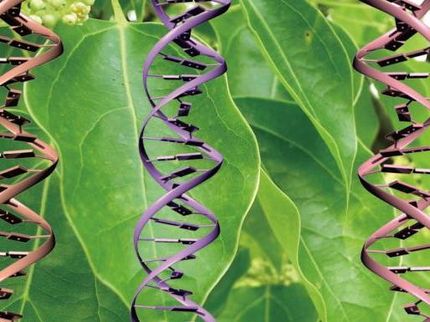BTI researcher gets NSF grant to create mutant maize lines for research
Advertisement
A Boyce Thompson Institute (BTI) researcher at Cornell University has received a grant to help assemble a unique database of DNA mutations in maize (corn). The project not only will allow researchers to study the effects of knocking out the function of single genes, one at a time, but also will create seeds for each mutation, or disrupted gene. The seeds will be made widely available to researchers. The new maize lines could one day lead to plants with tailor-made properties, such as higher protein or vitamin content or easier-to-digest starch for ethanol production.
Funded by a new five-year, $3.8 million National Science Foundation (NSF) grant, the project will generate some 10,000 lines in maize, each lacking a single gene and its function, says Thomas Brutnell, the principal investigator, a researcher at BTI and an adjunct assistant professor of plant biology at Cornell. Brutnell shares the award with two Iowa State University researchers and will use $1.9 million in his Cornell lab.
Brutnell and colleagues will develop lines of maize that have a piece of DNA that can be moved from one part of the plant's genetic sequence, or genome, to another. Called transposons, or jumping genes, these mobile pieces of DNA knock out the function of genes they jump into, thereby mutating the genetic makeup. What is unique about this collection is that a single gene will be disrupted in each line while the 50,000 or so other genes are kept exactly the same from seed to seed. A missing gene may alter processes in ways that are easily visible to the naked eye or through biochemical or physiological analysis. Such experimentation will give researchers a better understanding of the relationships between specific genes and complex plant systems. The database will be invaluable to academic researchers interested in how specific genes are involved in basic developmental or physiological processes, as well as to biotechnology industry scientists seeking to create maize plants with enhanced properties for agriculture or industry, Brutnell says.
Once scientists have identified a maize mutant from the online library, they will be able to order kernels with that specific knockout gene. Researchers can then grow plants to identify the function of the gene they are interested in. The maize kernels will be donated to the U.S. Department of Agriculture's Maize Genetics Cooperative Stock Center, a national clearinghouse where scientists will be able to obtain the seeds for their experiments. The project is especially important given the breadth of uses for maize, Brutnell adds. "If you walk into a grocery store, 80 percent of the products on the shelves contain maize, in the form of starch, sugar, meal or oil," he says. "It's a $23 billion-a-year industry in the U.S. alone."
Brutnell's colleagues include Erik Vollbrecht and Volker Brendel, both in the Department of Genetics, Development and Cell Biology at Iowa State University in Ames; Brendel is also in the Department of Statistics. The NSF grant, awarded by the Plant Genome Research Program, is designed to promote infrastructure for conducting genomics research in such major crop plants as maize.



























































